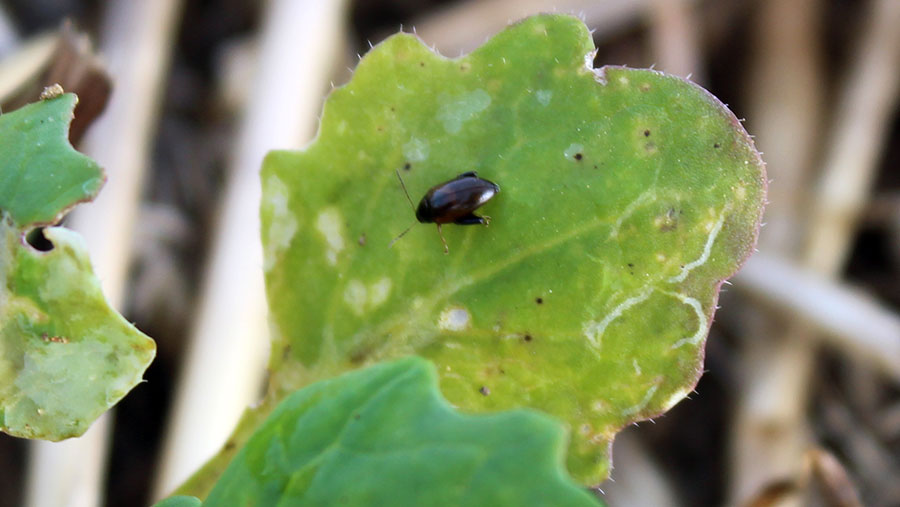Brussels urges total ban on neonicotinoids
 © Oli Hill
© Oli Hill A ban on neonicotinoid pesticides could be extended across all crops – not just crops such as oilseed rape, it has emerged.
Neonicotinoids could be “banned from all fields across Europe” under draft proposals from the European commission, according to a report by The Guardian.
The newspaper said it has seen documents described as the first indication the commission wants neonicotinoids banned completely because of the risks posed to bees.
See also: EU food watchdog delays neonicotinoid review
“A ban could be in place this year if the proposals are approved by a majority of EU member states,” reports the paper.
Three neonicotinoid pesticides – imidacloprid, clothianidin and thiamethoxam – were banned by the commission on flowering crops such as oilseed rape in 2013.
Three-year moratorium
The three-year moratorium was introduced amid concerns that neonicotinoids pose a “high acute risk” to honeybees when used on crops they find attractive.
Pesticide manufacturers – and farmers who believe the ban is unjustified – have been at loggerheads with environmental campaigners over the issue.
The moratorium remains in place pending a full re-evaluation by Brussels of the scientific evidence of the risks post by neonicotinoids to bees.
Findings from the re-evaluation were expected to be published earlier this year.
But the deadline was extended until the autumn to give scientists more time to consider the large amount of information they received as part of the study.
‘Dismayed’
The Crop Protection Association (CPA), which represents agrochemical manufacturers, said it was dismayed at the suggestion neonicotinoids could be banned completely.
CPA chief executive Sarah Mukherjee said: “We are disappointed with this proposal, which seems more of a political judgement than sound science.”
Ms Mukherjee said the proposal was based on an assessment using an unapproved bee guidance document – which, she said, was a theoretical guidance paper.
The document was not supported by EU member states, she said. It was impractical, overly conservative and did not take into account realistic scenarios.
Ms Mukherjee said: “It also lacks the legally required approval by EU member states, and is therefore not applicable for regulatory purposes in the EU. “These proposals perfectly illustrate the consequences of using this guidance. Most crop protection products, including those used in organic agriculture, would not pass the unrealistic criteria.
“These proposals perfectly illustrate the consequences of using this guidance. Most crop protection products, including those used in organic agriculture, would not pass the unrealistic criteria.
“Using the bee guidance document for regulatory purposes, will further limit farmers’ ability to bring healthy, safe, reliable and affordable food to tables across the UK.”
But environmental campaigners disagreed.
Friends of the Earth senior nature campaigner Paul de Zylva said: “Evidence of the harm neonicotinoids cause to our bees is strong enough to justify a complete ban.”
Studies showed the chemicals affected other wildlife – including wild flowers – as well as the quality of soils and water, said Mr de Zylva.

